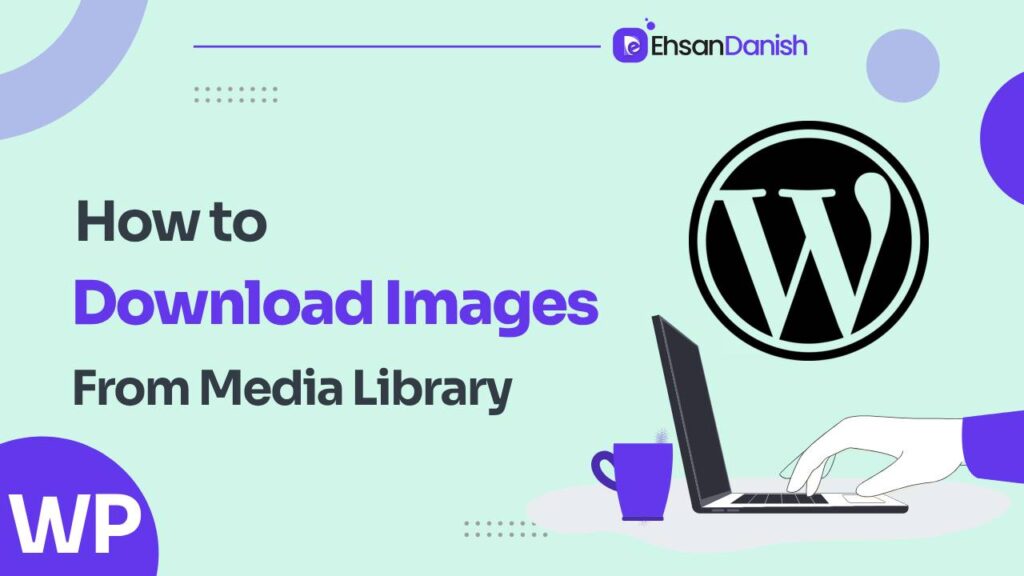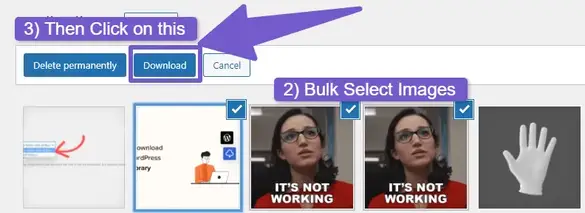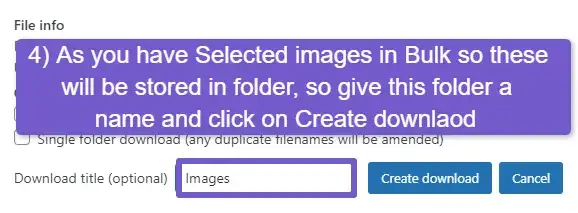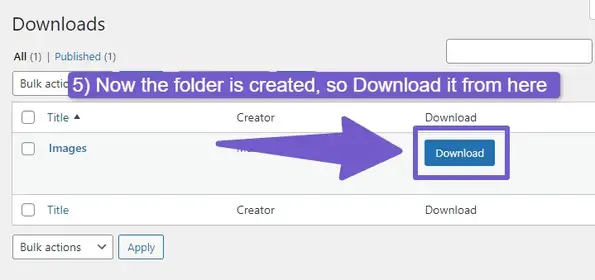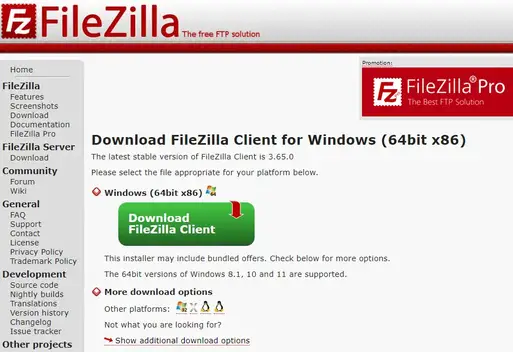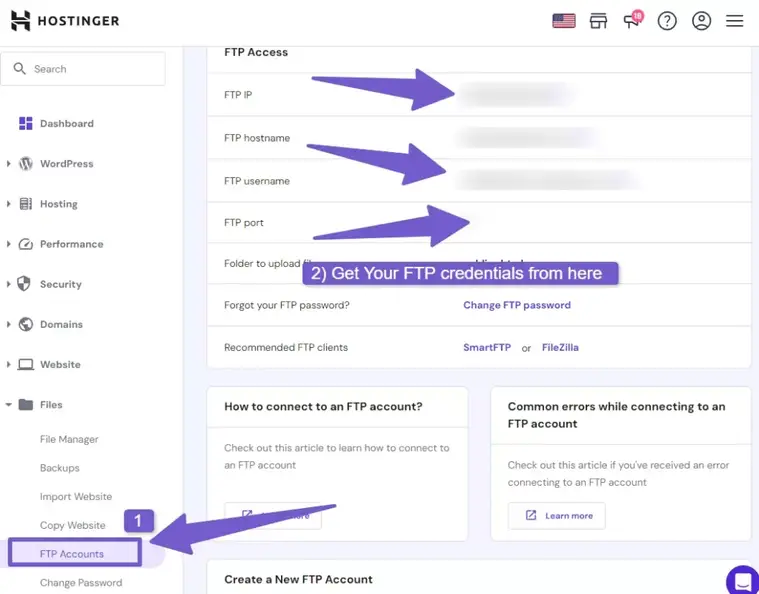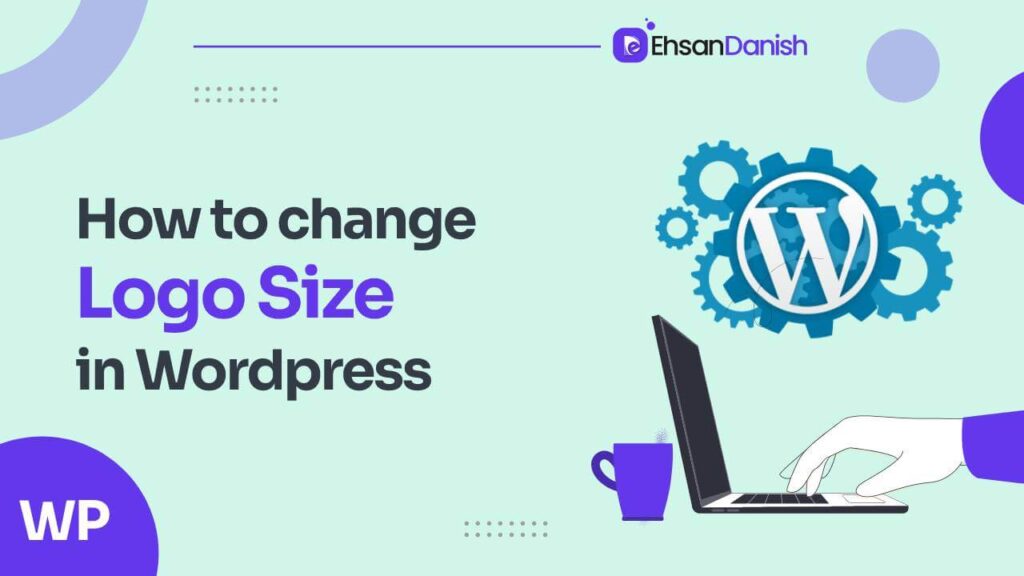Downloading images from the WordPress Media Library is a common task for website owners, content managers, and developers. Whether you are performing backups, migrating a website, or simply need access to certain images for other purposes, there are multiple methods to accomplish this task. Wondering how to download images from WordPress Media Library? You’re in the right place! This guide will show you easy ways to get your pictures, whether you need just one or a bunch of them. Keep reading to find out which method is best for you! Below are four ways to easily download images from your WordPress Media Library.
Methods to Download Images from WordPress Media Library
In this article, we’ll explore four straightforward techniques for downloading images from your WordPress Media Library, ensuring you can access and utilize your media assets with ease.
1) Downloading Images Manually via WordPress Dashboard
Downloading images manually from the WordPress Dashboard is the most straightforward method, particularly useful when you need just a single image or a small handful. This method is often chosen for its simplicity and immediate access, requiring no additional tools, plugins, or technical know-how. However, it can be tedious if you’re looking to download a large set of images.
Steps:
- Login to WordPress Dashboard: Access your WordPress admin area by going to
http://yourdomain.com/wp-admin. Replaceyourdomain.comwith your actual domain name. - Navigate to Media Library: Once you’re in the Dashboard, go to
Media > Library. - Find the Image: Browse or use the search functionality to locate the image you want to download.
- Click the Image: Clicking the image thumbnail will open a detailed “Attachment Details” view.
- Download: Right-click on the image and choose “Save image as” to download the image to your computer.
Limitations:
- This method is suitable for downloading images one at a time. For bulk downloads, it can be time-consuming.
2) Bulk Attachment Download Plugin to Download Images From WordPress Media Library
When dealing with a larger set of images, the manual method can quickly become impractical. That’s when a specialized WordPress plugin for bulk attachment downloads can come in handy. These plugins are designed to automate the process by allowing you to select multiple images and download them in a compressed format, usually a ZIP file, saving you valuable time and effort.
Steps:
- Install Plugin: Go to
Plugins > Add New, then search for “Bulk Attachment Download“. Install and activate the plugin. - Navigate to Media Library: Go to
Media > Library. - Select Images: Use the checkboxes to select multiple images.
- Bulk Actions: From the “Bulk Actions” dropdown, choose the option for bulk downloading (usually labeled “Download”).
- Execute: Click the “Apply” button. The plugin will zip all the selected images and initiate a download.
Limitations:
- Additional plugin installation is required.
- Depending on the plugin, there may be a limitation on the number of images you can download at once.
3) Downloading Media Library Images via FTP (File Transfer Protocol)
For those who have a good grasp of technical aspects and are comfortable using FTP clients, this method offers more control over the download process. It’s especially useful when you need to download large sets of media files or even the entire media library. FTP allows you to directly access server files and download them efficiently, which makes this method ideal for advanced users who are looking for a robust and comprehensive solution.
Steps:
- FTP Client: Download and install an FTP client like FileZilla.
- Connect to Server: Open the FTP client and connect to your server using your FTP credentials.
- Locate Media Folder: Once connected, navigate to
wp-content/uploads. This folder contains all your media files, organized by year and month. - Download Images: Locate the images you need and simply drag them to a folder on your computer to initiate the download or download by right-clicking on the image.
Downloading Original Images via FTP:
- If you need the original, unmodified images, they are usually located in the same folder as the other images, without any size suffixes in the filename.
Limitations:
- Requires some technical know-how.
- Bulk download may take time if the media library is large.
4) Use a Website Image Downloader Tool/Extension
If you’re looking for a method that doesn’t require backend access to your WordPress site, third-party image downloader tools or browser extensions might be the solution. These tools are easy to use but may require some configuration. They are particularly useful for downloading images from multiple pages or scraping images across a site, although you may need to sift through the downloaded files to find the specific images you want.
Steps:
- Choose a Tool: Search for a reliable website image downloader tool or browser extension. Examples include DownThemAll for Firefox or Image Downloader for Chrome.
- Configure Settings: Install the tool and configure any necessary settings like file types or image resolution.
- Initiate Download: Navigate to your WordPress website, open the tool, and initiate the download process.
Limitations:
- Some tools may download all images on a page, including theme elements, making it difficult to isolate specific media library images.
- Quality and resolution settings may vary depending on the tool.
Optimizing Image Resolution and Format for Your Website
When adding images to your blog or website, it’s important to consider both resolution and format to enhance visual appeal and improve performance. Here are some key tips:
Image Resolution
- High-Resolution Images: Use high-resolution images (72 PPI) for clarity. An image width of 1200 pixels is generally sufficient for blog posts.
- Balance Quality and Load Time: High-resolution images look great but can slow down your site. Find a balance between quality and file size.
- Responsive Images: Implement responsive images that adapt to different screen sizes using the
srcsetattribute.
Image Formats
- JPEG: Ideal for photos and images with gradients, offering good quality and small file sizes. Use JPEGs for most blog images.
- PNG: Best for images requiring transparency or with sharp edges, like logos and icons. PNGs maintain higher quality but are larger in size.
- WebP: A newer format with superior compression, providing faster load times without compromising quality. Ensure browser compatibility or provide fallback options.
- GIF: Suitable for simple animations and images with limited colors. Use GIFs sparingly due to larger file sizes and lower quality.
Final thoughts
Each method has its own pros and cons, and the best approach depends on your specific needs. For individual downloads or a small number of files, manual downloading may suffice. For larger sets, a plugin or FTP method would be more efficient. Choose the one that best suits your needs and skill level. We’ve gone through four different ways to get pictures from your WordPress website. Some are as simple as a few clicks in your website’s dashboard, and some need extra tools or steps.
Each way has its own good and not-so-good points. If you only need a couple of pictures, doing it manually is quick and easy. For lots of pictures, you might want to use a plugin or another method. Whatever you need, there’s a way to do it that’s right for you. Use this guide as a helpful tool to make your choice easier. Now you’re ready to go download those images you need, whether it’s just one or a whole bunch!
Frequently Asked Questions
Can I download all images from my WordPress Media Library at once?
Yes, you can download all images at once using methods like the Bulk Attachment Download Plugin or via FTP access to your server. These methods are more suited for downloading large sets of files.
Is it safe to download images via FTP?
Yes, FTP is generally safe if you follow good security practices, such as using strong passwords and employing secure FTP (SFTP) instead of regular FTP.
Do I need technical skills to download images from the WordPress Media Library?
Some methods like downloading via FTP require a basic understanding of technology and website structure. However, other methods like manual download or using a plugin are straightforward and do not require special skills.
Will downloading images affect my website’s performance?
Downloading images from your Media Library generally won’t affect your website’s performance, as these actions are separate from the website’s live functionalities.
What should I do if I encounter errors while using a plugin to download images?
Errors could be due to various factors, such as plugin conflicts or server limitations. Check the plugin documentation for troubleshooting tips, or try deactivating and reactivating the plugin. If the issue persists, consider reaching out to the plugin’s support team.
Can I download images in their original quality?
Yes, the original quality of images is retained when downloaded directly from the Media Library or via FTP. Some third-party tools might offer different quality settings.
Is it possible to download images from a WordPress website that I do not own?
Downloading images from a website you don’t own may involve legal considerations like copyright laws. Always make sure you have the right permissions before downloading someone else’s content.
Are there any limitations when using third-party image downloader tools?
Third-party tools may download all images on a page, including website design elements, advertisements, or even thumbnails. You may have to manually sort through the downloaded files to find the specific images you need.
Can I download other types of media files using these methods?
Yes, most of these methods can also be used to download other types of media files like videos, audio files, and PDFs, which are also stored in the WordPress Media Library.
Do I need to back up my website before downloading images?
It’s always a good practice to back up your website regularly, although downloading images alone should not affect your website’s data or performance.
